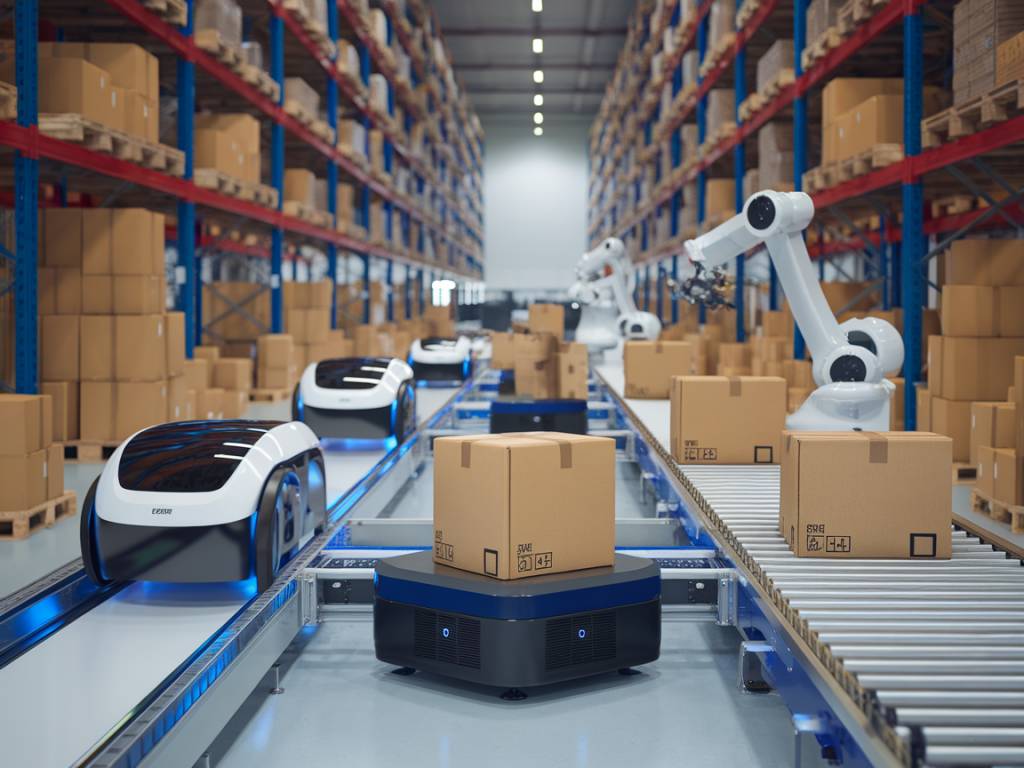The logistics industry is undergoing an unprecedented transformation with the boom of automation technologies. These advancements promise to enhance efficiency, reduce costs, and streamline operations across the supply chain. Here, we explore the top 10 automation technologies that are reshaping the logistics landscape.
Robotic Process Automation (RPA)
Robotic Process Automation (RPA) involves using software robots to perform repetitive and mundane tasks traditionally handled by human workers. In the logistics industry, RPA can be employed for tasks such as data entry, order processing, and inventory management. By utilizing RPA, companies can reduce human error, accelerate processing times, and allow human workers to focus on higher-value activities.
Autonomous Vehicles
Autonomous vehicles, including self-driving trucks and drones, are revolutionizing the way goods are transported. These technologies promise enhanced safety, reduced labor costs, and increased delivery efficiency. Self-driving trucks can operate around the clock without the need for rest breaks, significantly speeding up long-haul transport. Drones are increasingly used for last-mile deliveries, especially in remote or congested urban areas.
Warehouse Automation
The implementation of automated systems in warehouses is dramatically changing how goods are stored, retrieved, and processed. Automated storage and retrieval systems (AS/RS), conveyor systems, and robotic picking systems are just a few examples. These technologies improve space utilization, increase throughput, and reduce the reliance on manual labor, making warehouse operations more efficient and cost-effective.
Internet of Things (IoT)
The Internet of Things (IoT) refers to the network of physical devices connected via the internet, enabling them to collect and exchange data. In logistics, IoT devices can track the location and condition of shipments in real-time. Smart sensors can monitor temperature, humidity, and shock levels, ensuring that sensitive goods are transported under optimal conditions. IoT technology also enables predictive maintenance of transport vehicles, reducing downtime and operational disruptions.
Artificial Intelligence and Machine Learning (AI/ML)
Artificial Intelligence (AI) and Machine Learning (ML) are pivotal in transforming logistics operations. These technologies can analyze vast amounts of data to optimize routes, forecast demand, and improve inventory management. AI-powered chatbots are increasingly being used for customer service, providing real-time updates and handling inquiries. Machine learning algorithms can detect patterns and anomalies, enabling proactive decision-making and risk management.
Blockchain Technology
Blockchain technology offers a secure and transparent way to manage logistics transactions. By creating an immutable digital ledger, blockchain enables traceability of goods, from the point of origin to the final destination. This technology reduces the chances of fraud, enhances trust between parties, and streamlines customs and compliance processes. Smart contracts, a feature of blockchain, can automate payments and contract execution upon meeting predetermined conditions.
Collaborative Robots (Cobots)
Collaborative robots, or cobots, are designed to work alongside human workers, enhancing productivity without replacing jobs. In logistics, cobots are employed for tasks such as packing, sorting, and palletizing. They are equipped with advanced sensors and safety features to ensure a safe working environment. Cobots can be rapidly deployed and reprogrammed for different tasks, providing flexibility and scalability in operations.
Big Data Analytics
Big data analytics involves the extraction of actionable insights from large and complex datasets. In the logistics industry, big data analytics helps in route optimization, demand forecasting, and identifying inefficiencies in the supply chain. By leveraging predictive analytics, companies can anticipate potential disruptions and proactively mitigate risks. This data-driven approach enhances operational efficiency and customer satisfaction.
3D Printing
3D printing, also known as additive manufacturing, is being used to streamline the production and distribution of goods. In logistics, 3D printing allows for on-demand manufacturing, reducing the need for large inventories and lengthy supply chains. Companies can produce spare parts and customized products locally, minimizing lead times and transportation costs. This technology also enables quick prototyping, accelerating product development cycles.
Digital Twins
Digital twins are virtual replicas of physical objects or systems, used for simulation and analysis. In logistics, digital twins can model entire supply chains, from manufacturing to delivery. This technology allows companies to run simulations, predict outcomes, and optimize processes without disrupting actual operations. By providing a holistic view of the supply chain, digital twins help in identifying bottlenecks, improving decision-making, and enhancing overall efficiency.
The logistics industry is rapidly evolving with the advent of automation technologies. Robotic Process Automation (RPA), autonomous vehicles, warehouse automation, IoT, AI/ML, blockchain, cobots, big data analytics, 3D printing, and digital twins are at the forefront of this transformation, offering enhanced efficiency, reduced costs, and streamlined operations across the supply chain.




